| Today, Saturday, we visited the Museo Nacional de Antropologia in San Salvador. During the visit I was most struck by the images of St. Oscar Romero. He was portrayed both in the exhibit on the history of El Salvador and in an exhibit on religion. It was a good day to be reminded of his work, his life, and his death. As Dr. Martin Luther King, Jr., he spoke out bravely for the needs of poor people even while in El Salvador 3000 people a month were being murdered. Thanks to the teamwork of the National Advocacy Center, today we issued a news release decrying the murders in New Zealand of our Islamic brothers and sisters. When confronted with such evil, I find it easy to get discouraged. However, St. Romero reminds me that I am part of a team, that it is God's Spirit working through me. "We cannot do everything, and there is a sense of liberation in realizing that. This enables us to do something, and to do it very well. It may be incomplete, but it is a beginning, a step along the way, an opportunity for the Lord's grace to enter and do the rest." ~ Oscar Romero St. Oscar Romero, pray for me. |
|
1 Comment
Today we went to Soyapango to visit a Catholic school serving over 200 children from preschool to ninth grade. As in the school in San Salvador, the children were bright and inquisitive. The young children rushed toward us "un abrazo."
Afterwards the school had an outside assembly to honor and welcome us. Over 200 students were present. For our entertainment, the students sang and the young ladies danced. They invited us up to the stage to say a few words. In my remarks, I wished them a welcome to the United States. Perhaps someday we will make that a real invitation. Afterwards we visited the homes of several of the students. We descended a steep incline that was inaccessible by cars. Here were shacks placed next to each other in abject poverty. However, when we walked by the houses, we were greeted with smiles and friendly waves. Entering the homes of some of the students, we found people living on the edge of survival. In one place, the family pressed upon us some beautiful, handmade baskets. No doubt the baskets were intended to be sold to help support the family. But it would have been offensive to them if we had declined their gifts. Being at the bottom of a steep decline, when it rained the whole community was submerged in mud. The mud even invaded their houses. I wondered how the children were able to cope while living in two separate worlds. At school, they were in a very middle class environment. The government provided them with shoes and school uniforms. But after school, they descended back into their hovels. After graduating from ninth grade, the students have very few options. If they go to secondary schools, to survive they will be forced to join a gang. Perhaps they could work in a factory but it would not provide sufficient income to support themselves much less a family. Their own families are too poor for them to stay at home. The only viable option is to immigrate illegally. To immigrate legally would take years. To me it seems clear that the government needs to provide financial assistance to the young people so that they can go to universities, develop skills and knowledge which they can contribute back to their communities. Otherwise the students are preparing themselves for a future that will never happen. With the breakdown of authority, El Salvador has never recovered from the 12 years of civil war. I spoke with an elderly woman who showed me terrible scars she had received during the war. Her entire family was killed. She survived by hiding under the bodies of the dead. We were fortunate to participate in the presentation of eight women in a micro financing, no-interest program. Because of the loans, they were able to start or expand their small businesses. They made valuable products available by using secondhand clothes or creating coffee shops, crafting jewelry, or other innovative approaches. What is truly amazing is that in the midst of all this poverty, a certain joy persists. This is not to romanticize poverty. The children desperately need good food, sanitary housing, and health care. They need space to grow. They need a future. Yet I would present an incomplete picture if I did not acknowledge the joyful spirit with which they meet incredible challenges and obstacles. Helen Keller said the world is full of suffering, but it is also full of the overcoming of suffering. Today I saw many instances of this truth. Today began with visiting a public kindergarten where two Sisters of the Good Shepherd volunteer once a week. I helped Sr. Digna and Sr. Judy prepare sandwiches and cakes for the children. The program serves about 40 children from three to five years old.
In addition to the food, we gave gifts to children who have birthdays coming up. Given the poverty, these gifts may be the only ones the children will receive. The children were great fun to interact with. One girl proudly counted to 10 in English. In return, I taught a few English words to some of the children. I'm always struck by how easy it is to make little children happy. If they feel loved and secure, and if they are given some food and treats, they are quite delighted to be alive and to be with their friends. As an adult, it's great to help children discover their own happiness. The primary work of the two Sisters is administering a micro financing project. Low income people, primarily women, are provided small, no-interest loans to help them start or expand a business. The businesses are located in a huge open air market where all manner of things can be purchased. However, the micro financing project is not just about finances. Each week the participants gather to discuss other ways their lives could be improved. Reflecting on both the kindergarten program and the micro financing project, I am reminded that our world is held together by people simply willing to do acts of kindness for other people. Political advocacy is important. However, we need these daily works of love to affirm our humanity and the humanity of our neighbors. 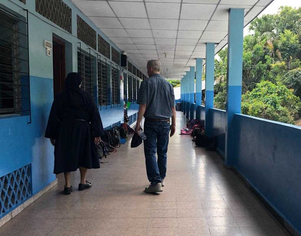 Walking the corridors of the Good Shepherd school. Walking the corridors of the Good Shepherd school. The morning began by joining the Contemplative Sisters of the Good Shepherd in San Salvador at morning mass. As I entered into the silence of the worship, I noticed how the early morning light played on the pews. As I relaxed, time slowed down. I realized that because of the pace I keep, I miss a lot of the beauty of everyday life. Although at first I felt restless, I'm glad I stayed and let the mind settle down so I could fully enjoy the present moment. Later we visited with the Contemplative Sisters and learned how they raised money by selling donated items. Throughout the visit, I appreciated the joy of the lifestyle they have chosen for themselves. Later we visited the school administered by the Sisters of the Good Shepherd. The school has close to 900 students from kindergarten through 9th grade. I was impressed by the school spirit. The girls and boys seemed very dedicated to their studies and eager to show their visitors what they have learned. I'm sure many of them will become the future leaders of El Salvador. The school provided a situation of love and security. I wondered how the school can maintain such an atmosphere given the level of violence in their country. I learned their success is largely dependent upon the fact that the administrators are able to select which students will be admitted to the school. They do not admit students who have any affiliation with gangs. In the vicinity there are many public schools. Unlike the Catholic school, the public schools have to admit everyone including known gang members. The presence of gang members can effectively destroy a school. A boy may approach a teacher, show him or her a knife or a gun, and demand an A for his grade. In order not to get killed, the teacher gives the boy or girl the grade s/he wants. The students who attend the Catholic school are "privileged." Philosophically, I do not like the idea of creating a privileged class. However, given the level of violence in El Salvador, parents have little choice if they want to provide a safe and quality education for their children. The current level of violence in El Salvador is apparently due to the country's 12 years of Civil War. In the absence of authority, gangs filled the vacuum. The people I have met in El Salvador have been friendly and gracious. But the shadow of violence is always present. Somehow the legitimate authority of civil society must be restored. As we were driving to San Miguel, we stopped at a convenience store to buy some refreshments. Foolishly, I did not hide my smart phone. One of the several young men nearby looked directly at my phone and then looked away. All the vibes told me that if I wasn't with a group of people, my phone and I would have separated company. A person who has lived in El Salvador for many years claims the Mafia was better. I don't know. But it appears at present the gangsters and the worst of people have a free hand in El Salvador. For me, the only hope is a freely elected democratic government with strong police powers that the people can trust. The United States should do what it can to encourage the election and functioning of such a government. 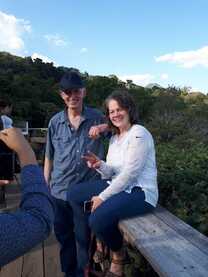 Relaxing at the end of a wonderful day sightseeing and orienting ourselves. Relaxing at the end of a wonderful day sightseeing and orienting ourselves. Early morning flight with only a couple hours of sleep. So nice to read emails of well wishes and a safe and joyful trip. I am going to El Salvador and Honduras to be in solidarity with the peoples of those countries. It will be my first trip to El Salvador and my fifth trip to Honduras. I have only joyful memories in my time in Honduras. This trip is different. While our country has always been somewhat divided on the issue of immigration, during the last couple of years the divide has become a canyon. As with so many other issues, immigration has become supercharged. The natural sympathy that people feel for people fleeing a desperate situation has gotten wrapped up in fear and political warfare. I am reminded of Chief Justice Potter Stewart who said he couldn't define pornography but he knew it when he saw it. In the same way, it is not easy to clearly define a just immigration policy, but it is easy to recognize an unjust policy. Certainly a policy is unjust when government officials separate babies from their mothers. Certainly the policy is unjust when people are arrested for leaving drinking water for immigrants crossing a desert and dying of thirst. Now we have the added reality that the push factors in the sending countries has become worse. Gang violence, poverty, and environmental degradation have added more pressure on people to leave and seek a better place for themselves and their families. So what do I hope to accomplish? I look forward to new friendships. In my earlier trips I found a people who are exceptionally friendly and hospitable. When I return to the United States, I hope to carry these friendships with me. Perhaps I can be a bridge of friendship. While good feelings cannot solve complex economic problems, the fear of the stranger, especially when this fear is preyed upon by politicians, can keep us from thinking clearly and compassionately. 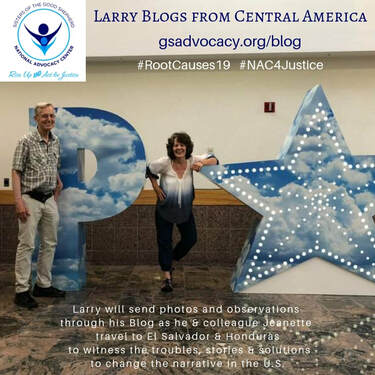 The Good Shepherd Sisters have a strong presence worldwide and a long-term commitment in Central America, especially among the poorest of the poor. The United States has had a troubling presence in the region. And while often unintended, negative consequences for the people have been cruel and have resulted in a region losing its population to the pull of the United States. On March 12, I travel to Honduras and El Salvador to visit Good Shepherd Sisters, learn of their work, show solidarity and identify push factors contributing to the migration crisis in our hemisphere. I leave to be in solidarity with the people. I carry the love and compassion of the Sisters of the Good Shepherd in North America. I hope to serve as a witness and to share what I witness with the sisters and with Members of Congress upon my return. While in Honduras, I also will participate in a 75-person interreligious Root Causes Pilgrimage. The pilgrimage is a follow-up to last year’s witness trip I took to Honduras with 40 faith leaders where we stood in solidarity with the people and protested a fraudulent presidential election. As I encounter our brothers and sisters on this mission trip, I will bring back their stories and learn what U.S. policies and legislation will help change the narrative and improve their lives. Joining with other advocates, I will press for needed policy and legislative changes. During my 18-day trip, I will send back photos, thoughts and observations via my blog and NAC’s Facebook and Twitter accounts. Hashtags to follow along are: #RootCauses19 #NAC4Justice Accompanying me to Honduras and El Salvador is Jeanette McDermott, the Communications Coordinator for the Province of Mid-North America of the Sisters of the Good Shepherd. Our trip is made possible by generous funding from the worldwide Congregation of Our Lady of Charity of the Good Shepherd and from the Missionary Servants of the Most Holy Trinity. "At a time of rising frustration with the inability of our government to address the important issues of our day, members of various Catholic organizations have joined together to offer suggested guidance to our elected leaders based on Catholic Social Teaching. The principles of Catholic Social Teaching are based on hundreds of years of confronting economic and social inequality, At this time of crisis, we believe these principles can serve people of various faith traditions as well as those who embrace a secular worldview. Before Congress can shape just legislation, each member needs to reflect deeply on their personal values and on our values as a nation. With our offer of guidance, we also offer to all of our elected officials our prayers as they engage in the difficult work of governance." ~~ Larry Couch On this Martin Luther King Day, we remember the teaching of this nation’s most prophetic peacemaker who said, “Our lives begin to end the day we become silent about things that matter.” Inspired by Dr. King, we declare that this is a moment of moral crisis in the United States. As national and international Catholic organizations, we feel compelled to address the political polarization that is eroding our democracy. The habit of inflicting suffering on some for the supposed benefit of others is all too common in both our political discourse and policies today. We wish to share this message with Catholic members of Congress, as well as with members from other faith and humanitarian traditions, at this critical time when the integrity and viability of our democratic institutions and traditions are at stake. We encourage members of Congress to look to the words of Pope Francis as a source of wisdom for addressing the challenges of modern society. In his historic address to the Congress on September 24, 2015, the pope offered a positive message and a clear call to all involved in the political process: “Building a future of freedom requires love of the common good and cooperation in a spirit of subsidiarity and solidarity …. The contemporary world, with its open wounds which affect so many of our brothers and sisters, demands that we confront every form of polarization …. Our response must instead be one of hope and healing, of peace and justice.” Now, we call on each member of Congress to gather the wisdom and courage that is needed and break free of the division and polarization that grip our nation. To achieve such a transformation of hearts, we offer our reading on the following six signs of the times. Political Virtues and Vices in the Shadow of a Nation in Crisis How we organize our society – our economics and politics, our laws and policies – directly affects human dignity and the capacity of individuals to grow in community. We ask members of Congress to remember that a basic moral test is how our most vulnerable members are faring. The first order of business is to take a long, hard, and honest look at the current state of affairs. In his 2019 World Day of Peace message, entitled “Good Politics is at the Service of Peace,"’ Pope Francis offered these cautionary words: “We think of corruption in its varied forms: the misappropriation of public resources, the exploitation of individuals, the denial of rights, the flouting of community rules, dishonest gain, the justification of power by force … to which we can add xenophobia [and] racism, lack of concern for the natural environment [and] the plundering of natural resources for profit, and contempt for those forced into exile.” Border Security and Immigration Reform What is the just and responsible way to address border security and immigration reform? Our Catholic tradition invites and challenges us to see the face of Christ in every immigrant and refugee mother, father and child. We particularly need to address the root causes of immigration, such as poverty, direct violence, and the role of U.S. policy. As Pope Francis said in his address to Congress: “We, the people of this continent, are not fearful of foreigners, because most of us were once foreigners. I say this to you as the son of immigrants, knowing that so many of you are also descended from immigrants …. We must not be taken aback by their numbers, but rather view them as persons, seeing their faces and listening to their stories, trying to respond as best we can to their situation. To respond in a way which is always humane, just, and fraternal.” Racial Justice and Voter Suppression The life and dignity of the human person is at the heart of Catholic social teaching. Human life is sacred and the dignity of the person is the foundation of a moral vision for society. The willingness of Congress to address criminal justice reform is a step in the right direction, but much more needs to be done to achieve racial equity in the United States. People have a right and a duty to participate in society, seeking together the common good and well-being of all, especially poor and vulnerable people. Voter suppression laws strike at this tenet by denying that right to those who are disproportionately poor, especially African American, Native American, and Hispanic American communities. Catholic social teaching also mandates that we provide opportunities for quality education, affordable housing, and access to adequate health care for communities of color who call the United States their home. We also call attention to Pope Francis’ historic statement last October rejecting the death penalty in all instances, especially since it disproportionately affects people of color, people who are poor, and persons with intellectual disabilities or severe mental illness. Climate Change and Care for the Environment Every day we are faced with the existential threats of global warming and climate change: destructive hurricanes, rising sea levels, severe droughts and wildfires. In his 2019 World Day of Peace message, Pope Francis laments the “lack of concern for the natural environment and the plundering of natural resources for the sake of quick profit.” We cannot ignore the reality of climate change and the scientific evidence of its human causes. The environmental challenge poses fundamental moral and ethical dilemmas, especially since those living in poverty and future generations bear a disproportionate share of its consequences. We have a particular obligation to children, something Pope Francis calls “intergenerational solidarity,” to address climate change. We are called to protect our people and our planet, living our faith in relationship with all of God’s creation. Nonviolence and an End to War and to the Strategy of Fear Finally, we must address the pandemic of violence and war that is sweeping the globe: from gun violence in our city streets to our support for war in distant lands. Ending the scourge of violence requires both deep wisdom and courage. In his 2017 World Day of Peace message “Nonviolence: A Style of Politics for Peace,” Pope Francis noted the historic contributions of Dr. King and other courageous peacemakers, and affirmed the urgent need to cultivate the power of active and creative nonviolence as a response to the deadly violence manifest throughout the world today: “This ‘piecemeal’ violence, of different kinds and levels, causes great suffering …. Violence is not the cure for our broken world …. The decisive and consistent practice of nonviolence has produced impressive results …. I pledge the assistance of the Church in every effort to build peace through active and creative nonviolence.” The experience of the past two years only reaffirms the need to move boldly and courageously to nonviolent solutions to domestic and global conflict and violence. Dr. King taught us that acting nonviolently in our words and actions is the way to redemption and lasting reconciliation. Good Politics at the Service of Justice and Peace In conclusion, we urge you, as faithful Catholics and citizens of every faith and humanitarian tradition, to affirm our common responsibility to promote the dignity of every person and to work for justice and the common good. As Pope Francis said in his 2019 World Day of Peace message, “Political office and political responsibility constantly challenge those called to the service of their country to make every effort to protect those who live there and to create the conditions for a worthy future.” We are bound by a common hope, based on our faith and the democratic traditions we share, that together we can turn away from the division and polarization that plague our political discourse and process. Find courage in the words of Dr. King: “Take the first step in faith. You don't have to see the whole staircase, just take the first step.” The fate of our democracy, as well as our planet and future generations, depends on it. Columban Center for Advocacy and Outreach ♦ Conference of Major Superiors of Men ♦ Franciscan Action Network ♦ Jesuit Conference Office of Justice and Ecology ♦ Leadership Conference of Women Religious ♦ Maryknoll Office for Global Concerns ♦ National Advocacy Center of the Sisters of the Good Shepherd ♦ NETWORK Lobby for Catholic Social Justice ♦ Pax Christi International ♦ Pax Christi USA ♦ Sisters of Mercy of the Americas Institute Justice Team
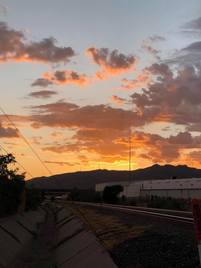 I am returning home from El Paso after yesterday's demonstration in front of the Tornillo Detention Center where some 200 children are locked up. A recent Washington Post editorial castigates the Trump Administration for its failure in reuniting the immigrant children with their parents. Rather than owning its failures, the Administration has complained about the court order mandating the reuniting of the children as being too strict. According to the Post, the "original sin" of the Administration was the cruelty of separating the children from their parents in the first place. However, I would say the "original sin" was the failure of the Republican party to immediately condemn Trump when he launched his campaign with a vicious attack upon immigrants. Theses attacks continued and unfortunately found traction among some voters. Having founded his campaign on anti-immigrant rhetoric, it is not surprising that his minions would not hesitate to tear infants and toddlers from their mothers' arms. It is not surprising that the Administration would not even bother to keep the records necessary for the eventual reunification of the families. I was proud to be able to represent the National Advocacy Center of the Sisters of the Good Shepherd at the demonstration. For decades, the Sisters of the Good Shepherd have served those who arrived in our country, frequently without material resources. But those immigrants eventually made America great. Trump did not make America great again. Rather his actions are a stain on our history of being a compassionate, welcoming nation. Currently I am in flying from Washington DC en route to El Paso, Texas to participate in a peaceful demonstration in front of the Tornillo Detention Center. I will be representing the National Advocacy Center of the Sisters of the Good Shepherd. Some 200 children are being held in the detention center as "alien unaccompanied minors." Many are "unaccompanied" solely because they have been forcibly separated from their parents. Aside from representing the National Advocacy Center of the Sisters of the Good Shepherd, I have personal reasons. Before I was born, my father filed for divorce from my mother. Possibly for economic reasons, it was the Great Depression, during the divorce proceedings my two older brothers were placed in a foster home while I was placed in a state nursery. Growing up, I lived in different foster homes. Overall I was well treated. Yet deep in my psyche, I know the pain of separation. As many others, I respond viscerally to the reports of the Trump Administration decision to separate children from their parents at the border. While supposedly the Trump policy has been changed, approximately 2,000 children still remain locked up in places such as the Tornillo Detention Center. The poet W.H. Auden said, "All I have is a voice to undo the folded lie." Lacking great political power, I can join my voice, my presence, with other people, to challenge the Trump administration as it tears children from their mothers. If we do not push back against what is evil, the evil of the Trump administration will become accepted as normal. This must not happen. Auden ends his stanza with, "We must love one another or die." -------------- Learn through this CBS News report that Tornillo is NOT subject to health and welfare inspections like nearly every other detention center.
Amazing story of intervention by the Catholic Charities of Archdiocese of Washington to support young woman find freedom and a new life.
According to the U.S. Department of Health and Human Resources: "Scared, with no one to turn to, Carla (name has been changed to protect the privacy of the people we serve) was in a country where she didn’t speak the language. She had endured serious abuse as a victim of sex trafficking. She had already been trafficked across several states.When the trafficking ring was raided by police, Carla was immediately placed in a detention center due to her immigration status. The law firm assisting her knew that Catholic Charities of the Archdiocese of Washington operated with support from the OTIP-funded Trafficking Victim Assistance Program and reached out to refer Carla for services." To continue reading complete story, click here. Our Emergency Delegation to Honduras has issued a report on our visit with the following findings:
Read the full report by clicking here. 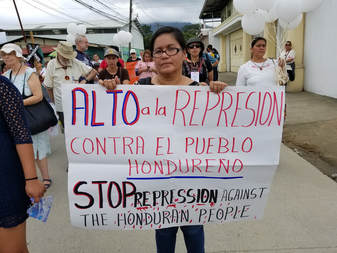 Now it's your turn. Please click here to send a letter to your U. S. Representative urging the suspension of police and military funds to Honduras. Funds should be suspended until human rights are assured and members of the police and military, who have committed human rights abuses, are brought to justice. Encourage your Representative to co-sponsor the Berta Caceres Human Rights in Honduras Act (H.R. 1299). I recently returned from Honduras as part of a 50-member Emergency Faith Delegation. We responded to the plea of Fr. Melo (Rev. Ismael Moreno, SJ) who asked, "We need you to organize delegations that will come to accompany us, to witness what is happening here and to share it with the world." Honduras is in an extreme crisis following a grievously flawed presidential election on November 26th. Social movements have been pouring into the streets for weeks protesting electoral fraud, and have been repressed by Honduran security forces. As of today, 38 people have been killed and hundreds wounded and detained. The Jesuit station, Radio Progreso, one of the last independent media in the country, was sabotaged in mid-December, its transmission tower destroyed. Recently, new death threats were issued against Father Melo and other social justice activists. Please act today to help insure justice for our sisters and brothers in Honduras. Thank you. One of my fellow delegates from the Emergency Delegation to Honduras last month also is a photographer. Mark Coplan documented our trip to Honduras and is sharing his photographs with us.
If you use any of the photos, credit: Mark Coplan. Here is Mark's Photo Sampler (or his Top 248): https://www.flickr.com/photos/54922368@N07/albums/72157663331962747 Below are two videos created by Mark: Emergency Faith Delegation to Honduras Sampler Video (12 min): https://vimeo.com/254782979 Emergency Faith Delegation to Honduras - the week (Jan 24-30, 2018) (31 min): https://vimeo.com/254999850
Today we held a press conference outside of the U.S. Embassy. At the conference, we called for an end to the violence and death threats to Fr. Melo, S.J., the leaders of the Popular Movement, and the people of Honduras. We expressed our support for the Popular Sector's demand for a National Dialogue for Peace with an International Mediator. We called on the. U. S. Government to end its support of the illegitimate election results. We urged the end of U.S. Security Aid and the Militarization of the Region. We demanded the end to the deportation of Hondurans and all Central Americans from the United States. We pledged our ongoing love and support for the people of Honduras. After the press conference, we met with senior staff of the U. S. Embassy. We shared with them our experience of our meetings with victims and family members of victims of police and military violence. We reported our firsthand observations of police violence. We reported our observation of widespread disbelief in the validity of the election and support for new elections. The Embassy staff saw gradual progress but said they would review the specific instances we brought to their attention. After the meeting, I spoke with one of the staff members of my observation of some 100 heavily armed police and military personnel, some wearing black masks, confronting a group of about 40 young adults and children. He simply replied that not all demonstrations are peaceful. I left feeling that he would not be of help in addressing a problem when he doesn't see it as a problem. I view such a disproportionate response as a display of raw power for the purpose of intimidating citizens and discouraging dissent. 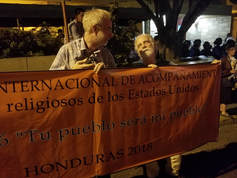 En route from San Pedro Sula to Taigucigalpa, we stopped at Red Camal, the center of a major cooperative movement in Cental America. Over the years, Red Camal has suffered repression and its leaders have been persecuted. At Taigucigalpa, we participated in a major manifestation in front of the American Embassy. Several members of our delegation spoke against the excessive force by the government toward protesters. Because of the flawed election, they joined with other organizations in the call for new elections. Yesterday was a much quieter day than Friday. We accompanied protesters in two different demonstrations. Before we arrived at the first manifestation, reportedly the police had clashed with demonstrators but subsequently worked out an arrangement. The demonstrators could close one lane of traffic but agreed to leave the other lane open. After a couple of hours, the demonstrators asked for us to accompany them home. They feared police could be hiding in the woods and they would be attacked as they walked along. We had about an hour's walk in the countryside. Walking along with the demonstrators, I was reminded again how young they are. It's blatant intimidation to bring out scores of heavily armed police to deal with the situation. When we arrived at the second manifestation, it was in full swing with demonstrators, police, and military police. It too was peaceful. Both road lanes remained open while the demonstrators and the police stood along the sides of the highway. In the peaceful manifestations I attended today, the mood of the crowd was joyful. At least 70 percent of the cars and trucks honked their support. Postscript - see the photo below of the tear gas canister that is Made in the USA. |
AuthorLawrence E. Couch serves as the director and lobbyist for the National Advocacy Center of the Sisters of the Good Shepherd. Want more? Sign up for updates, resources, action alerts. Rise Up & Act for Justice.
Archives
March 2021
Categories
All
|

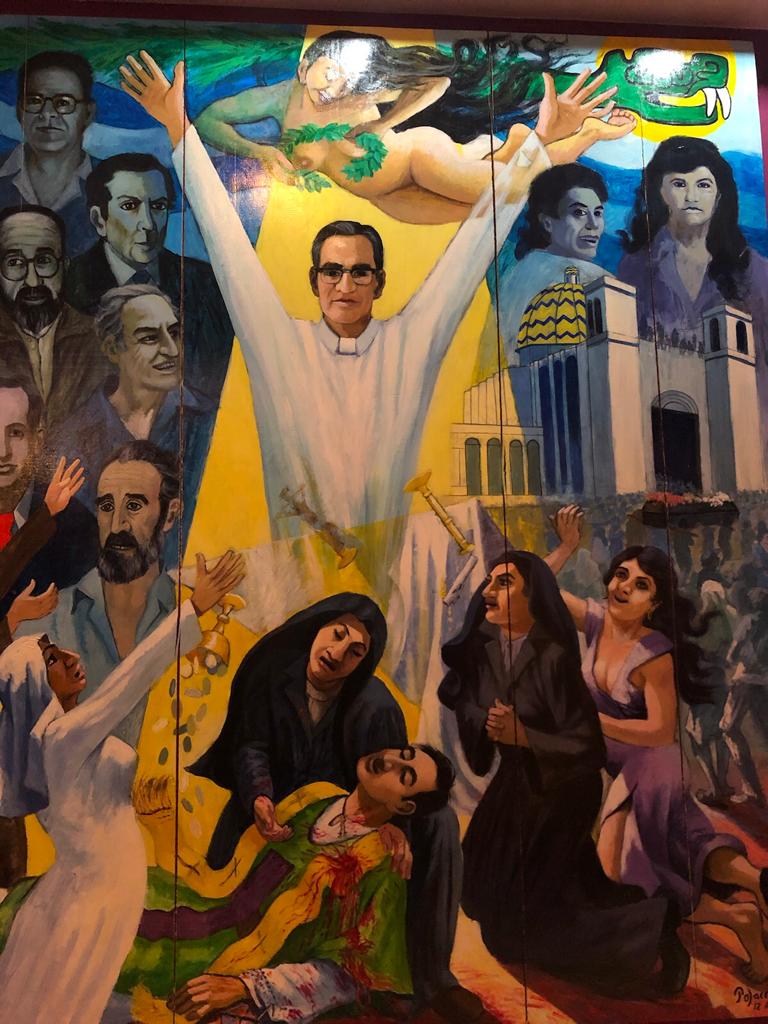
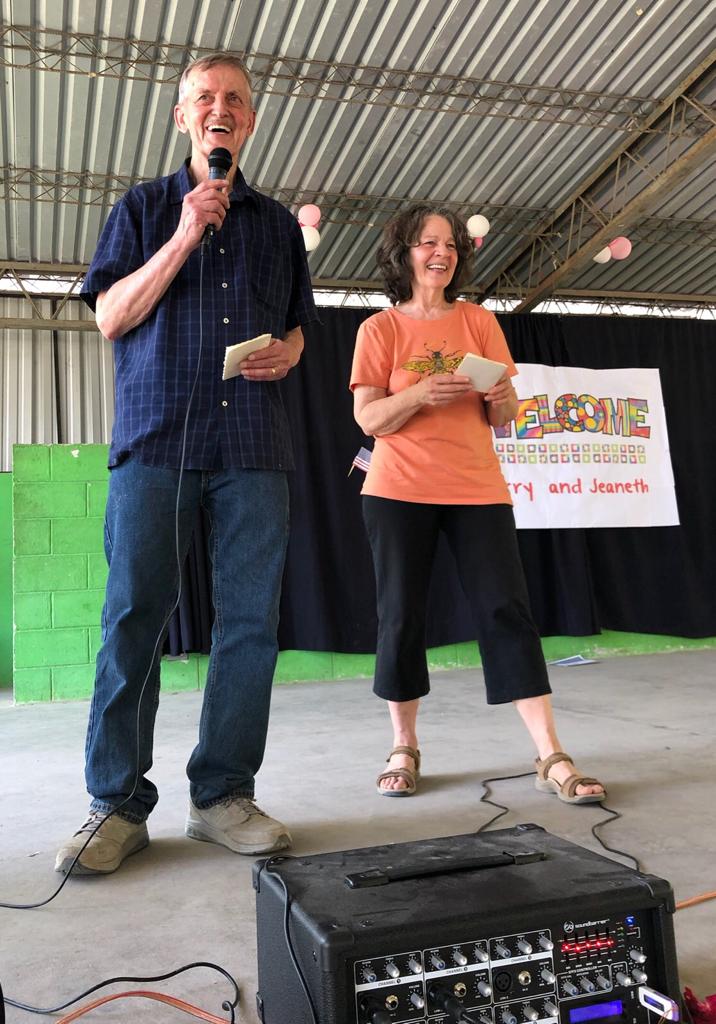
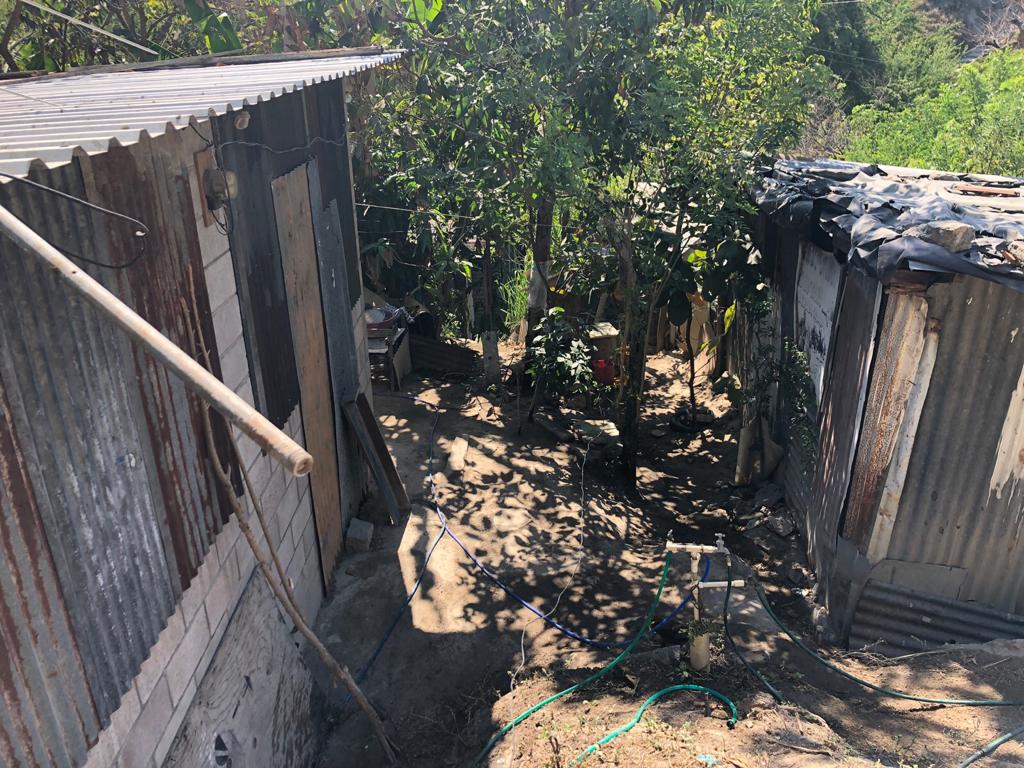
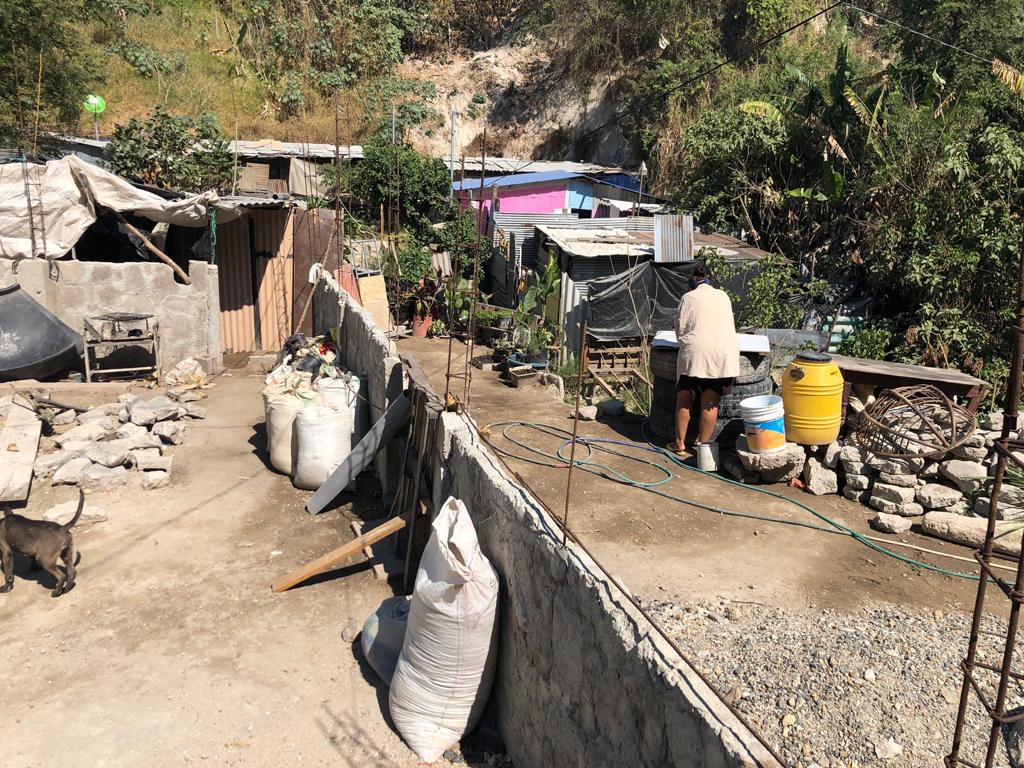
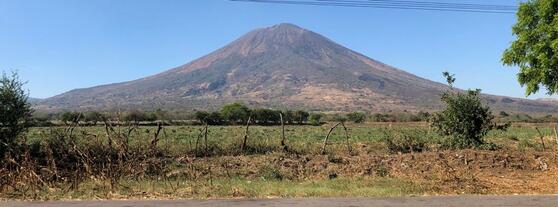
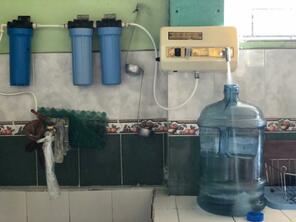
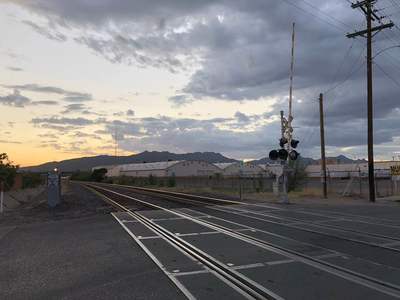
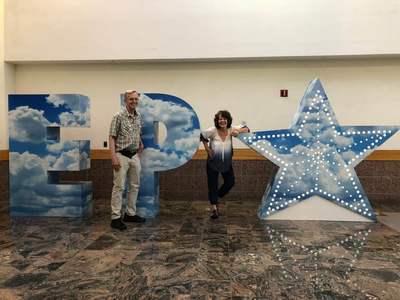
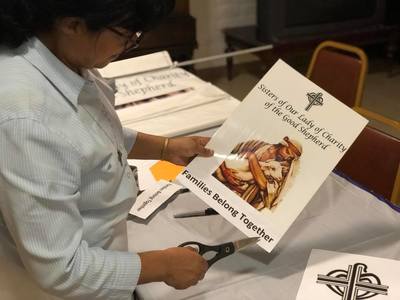
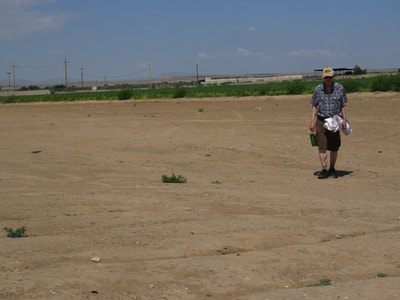
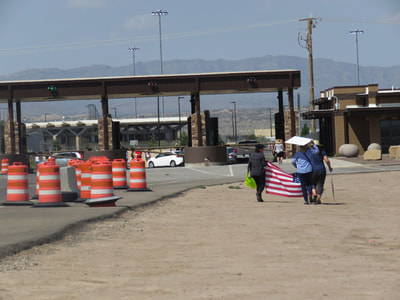
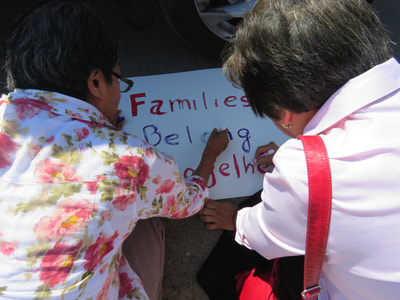
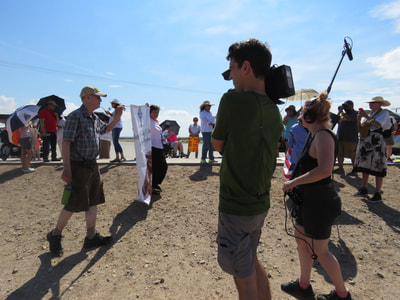
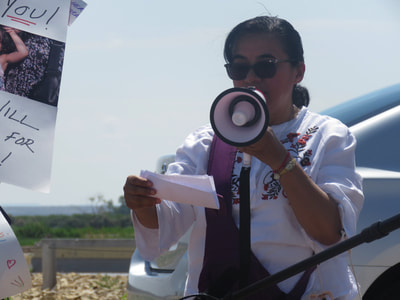
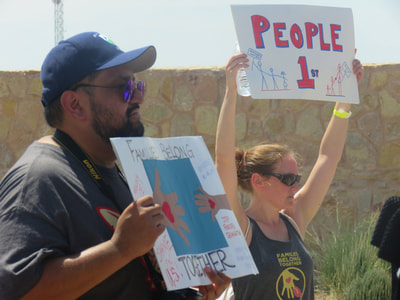
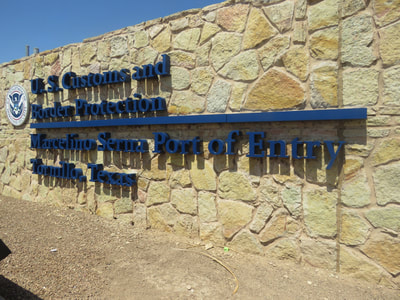
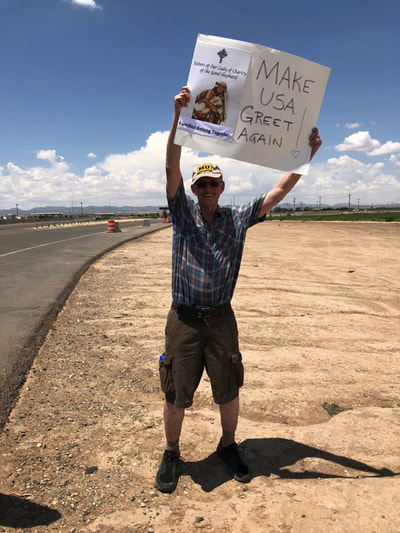
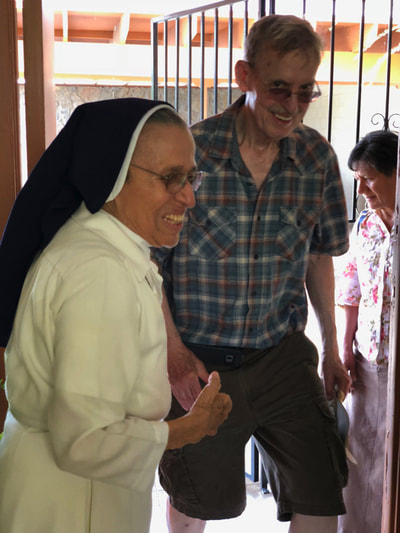
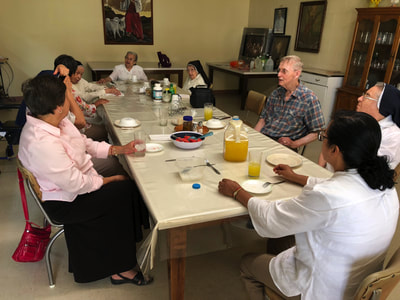
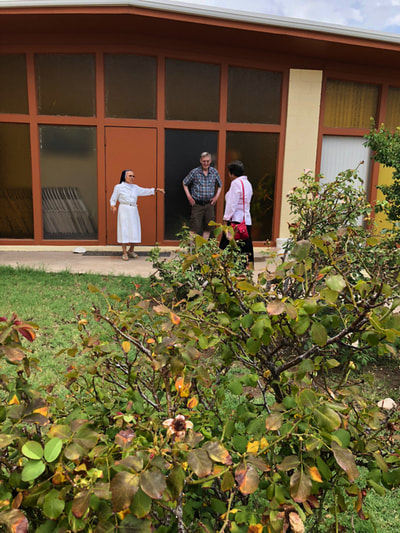
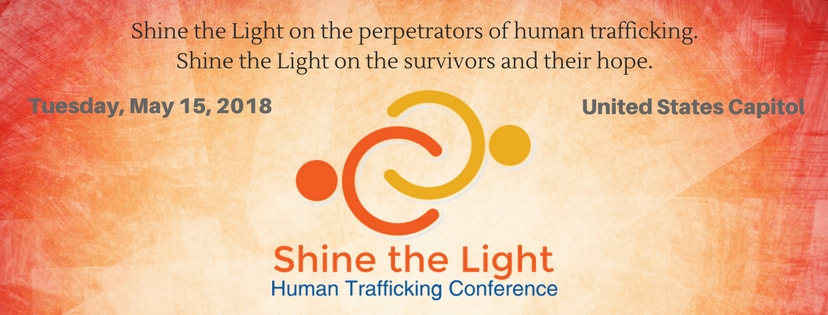
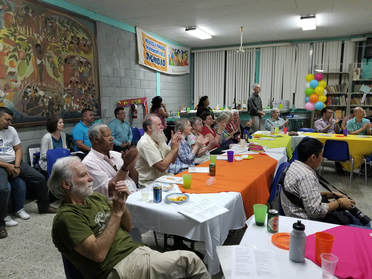
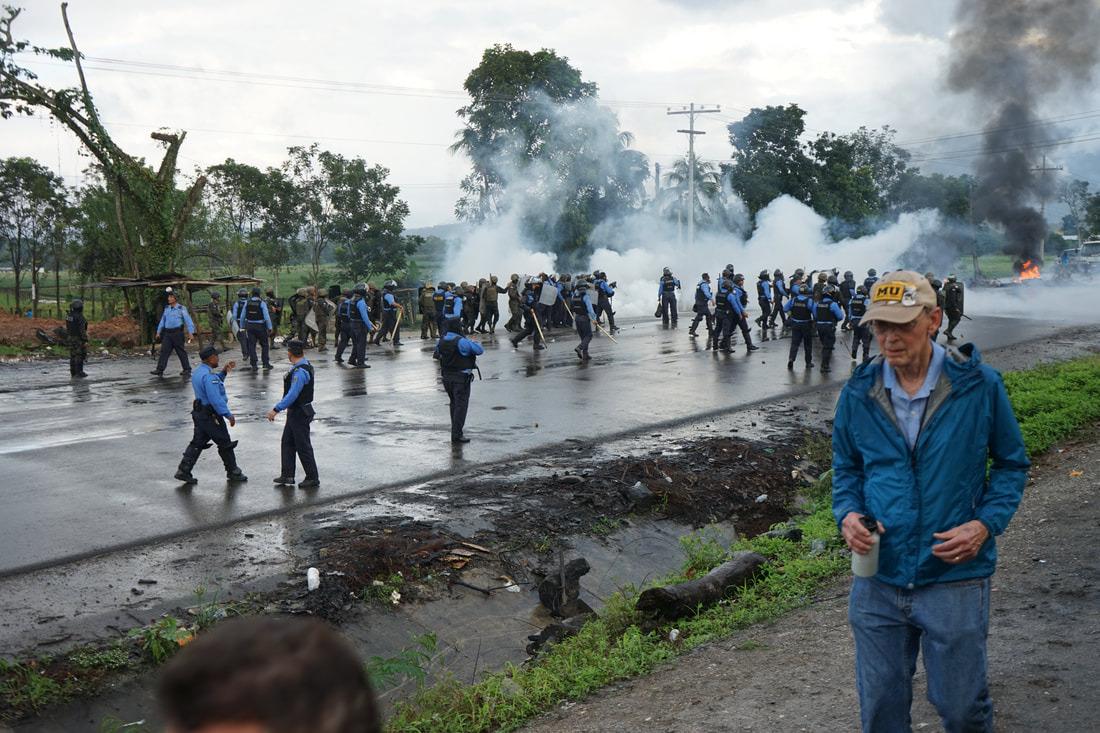
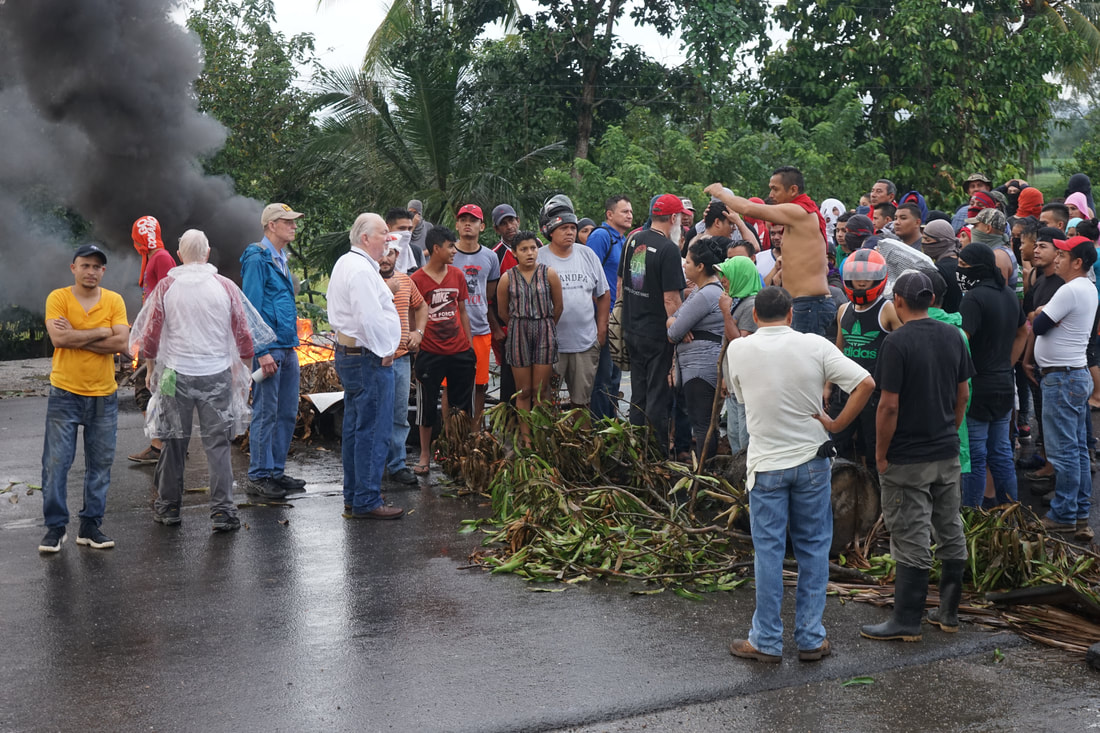
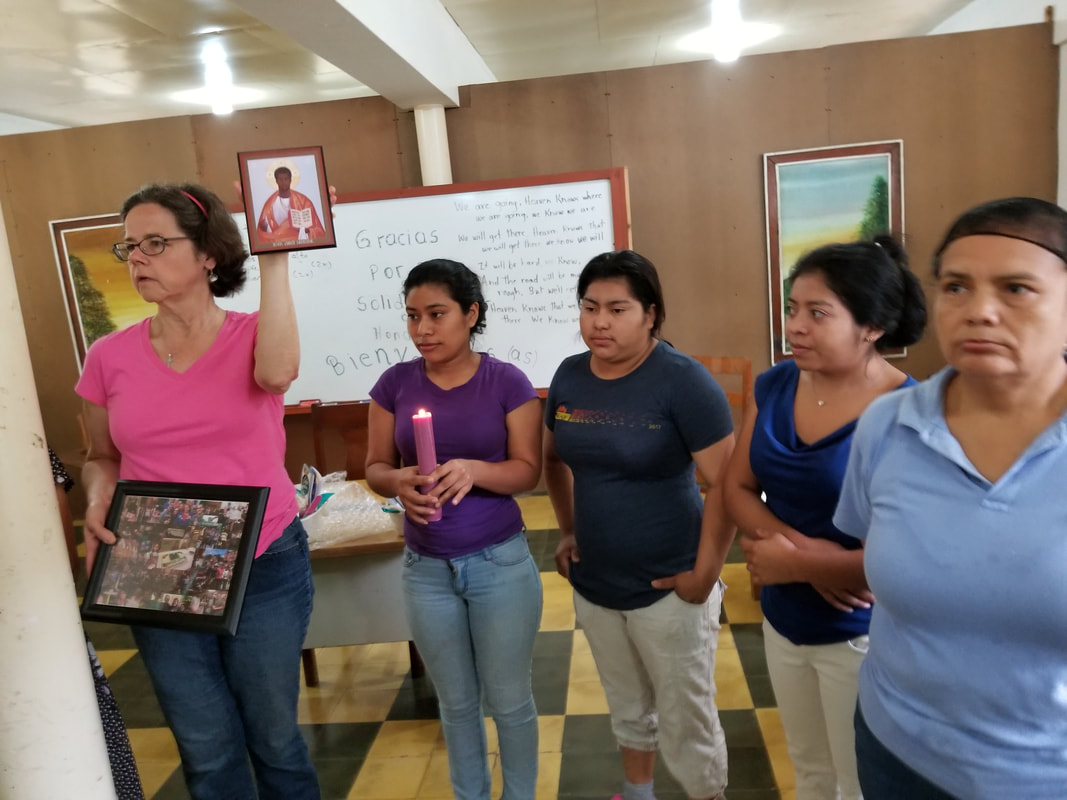
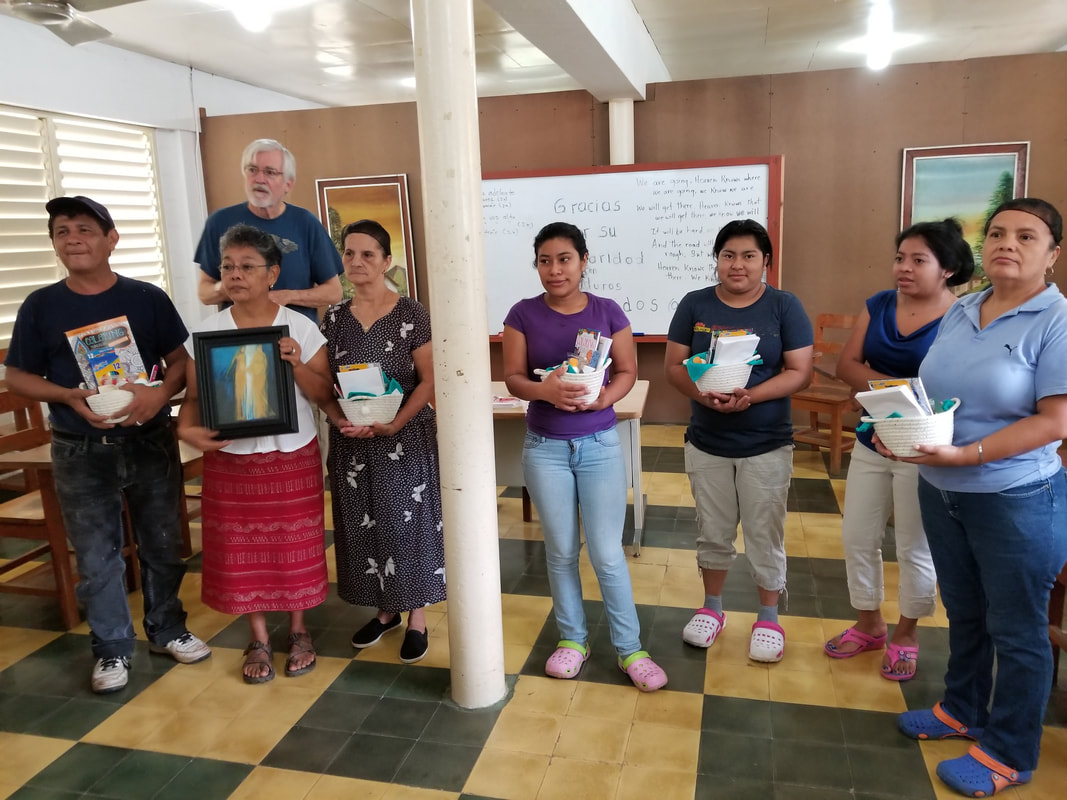
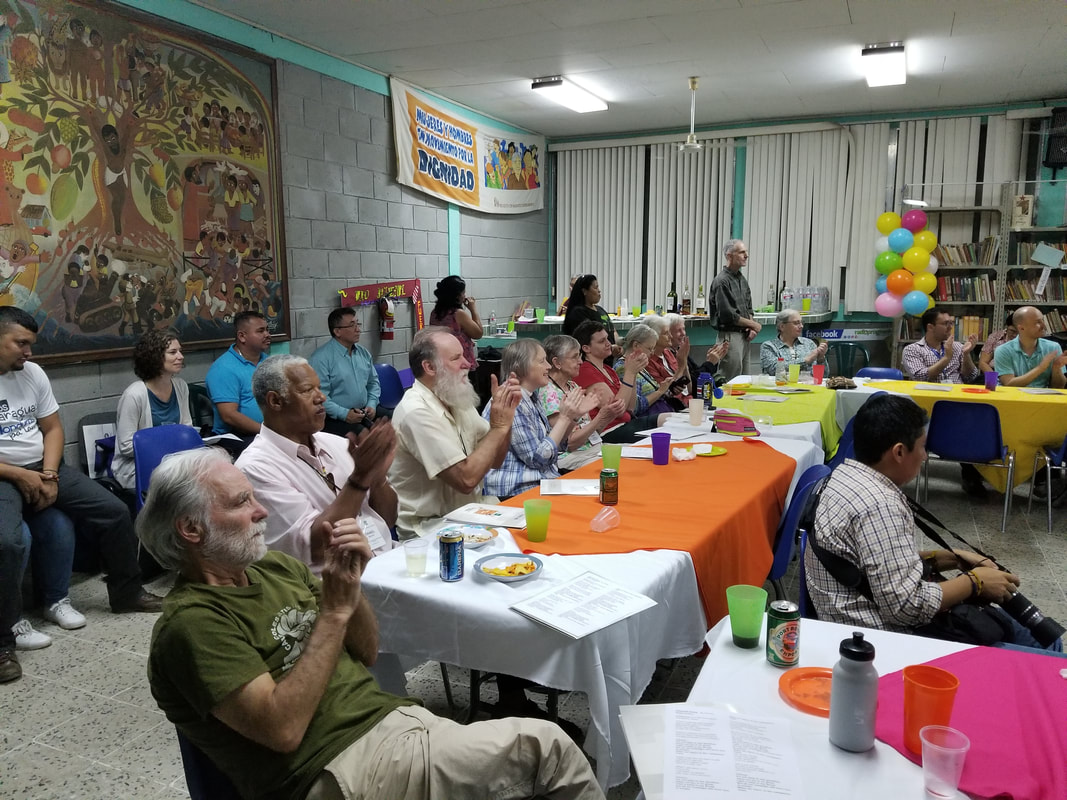
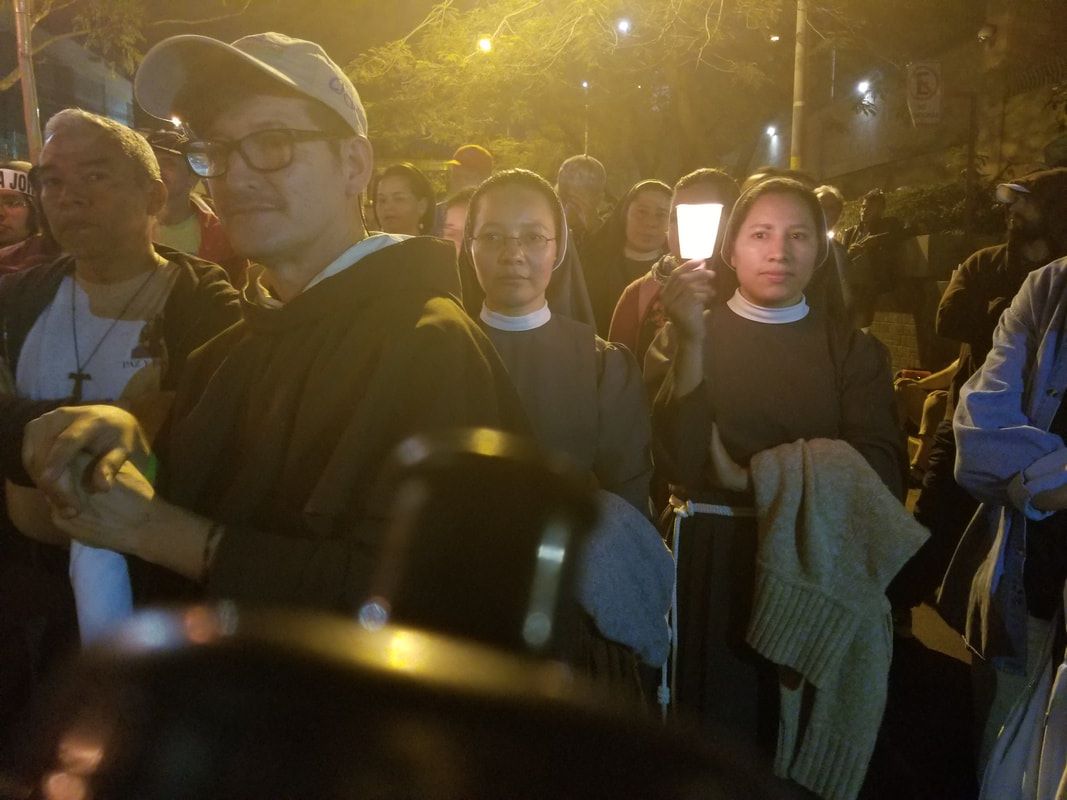
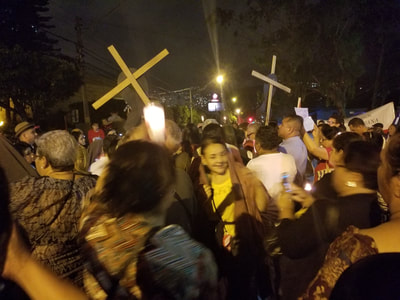
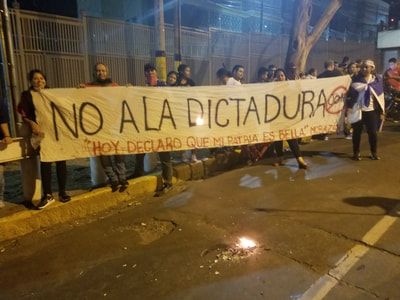


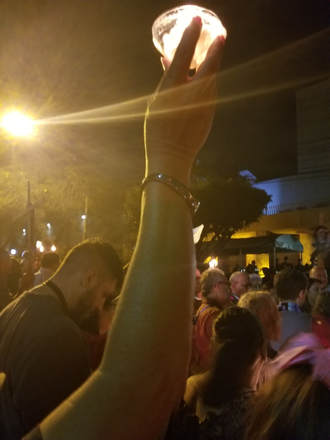
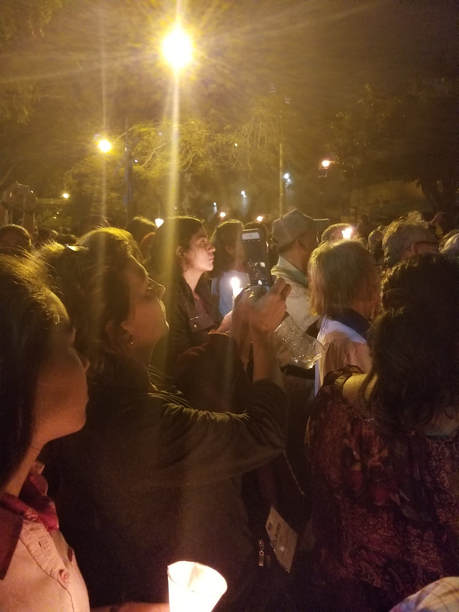
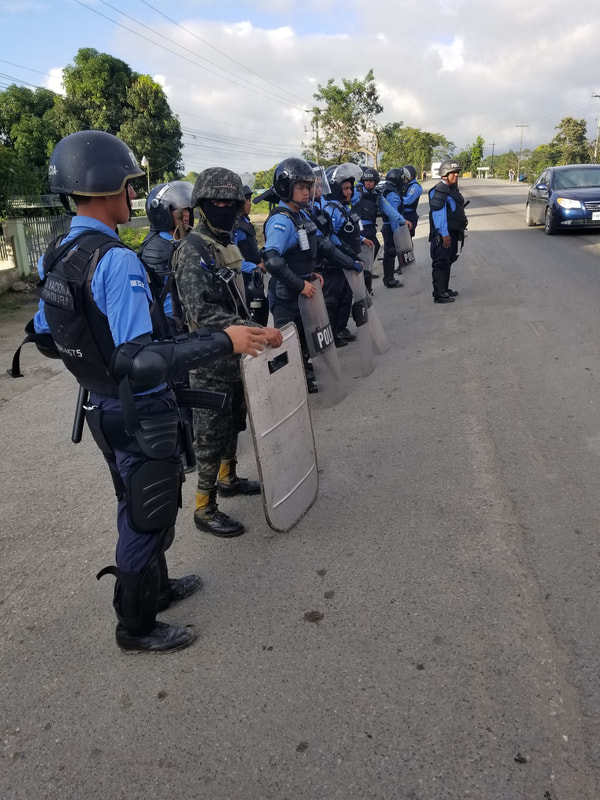
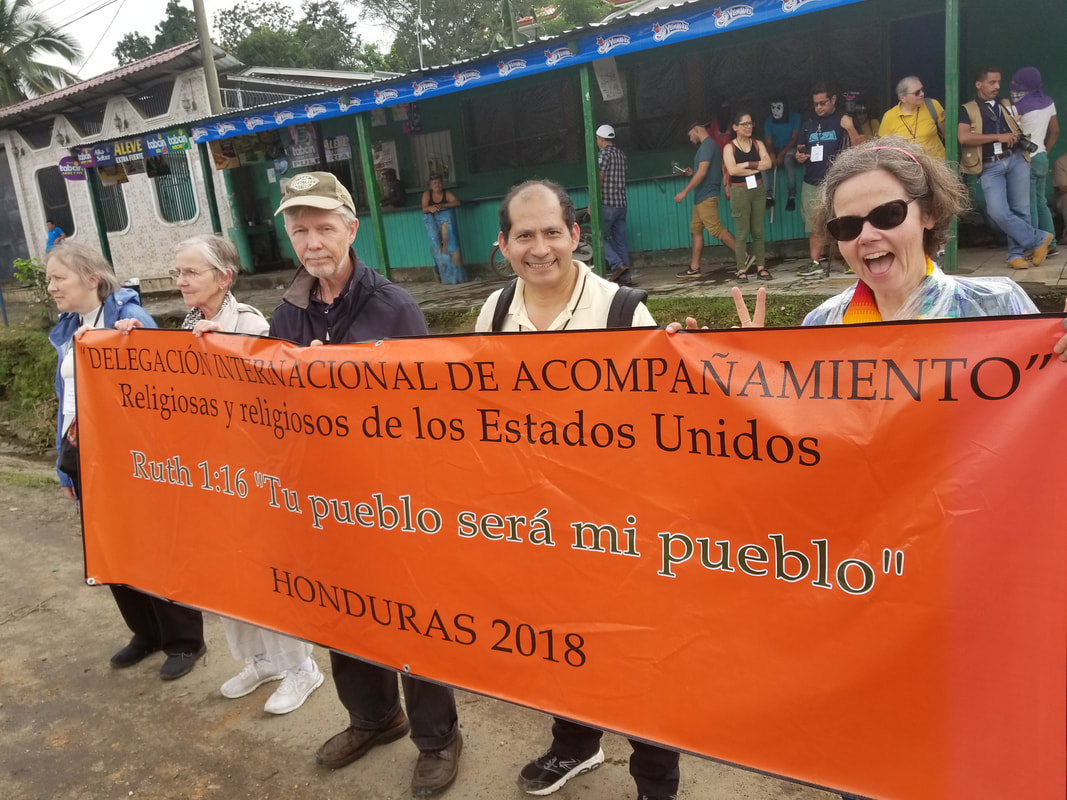
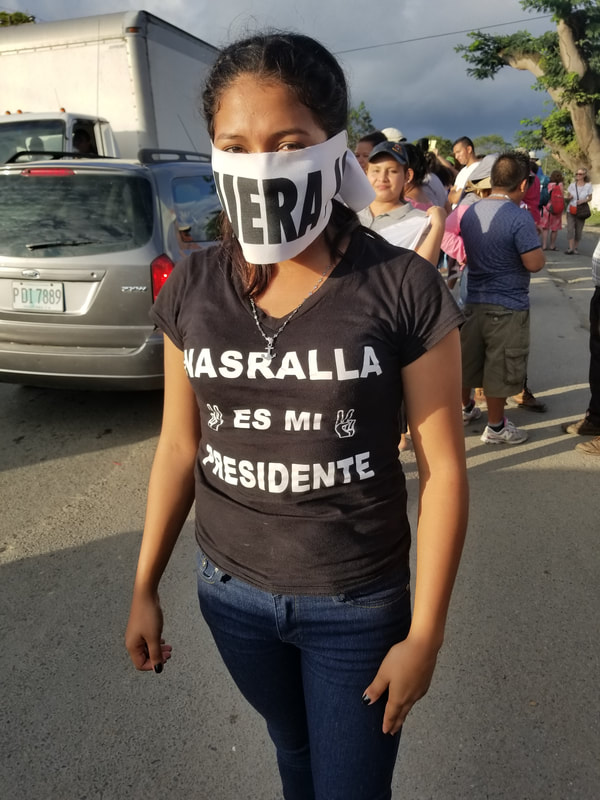

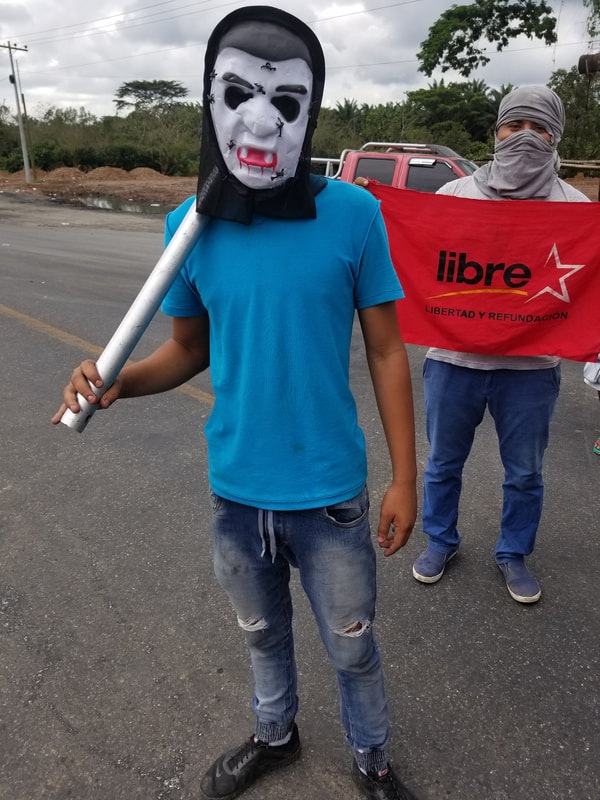
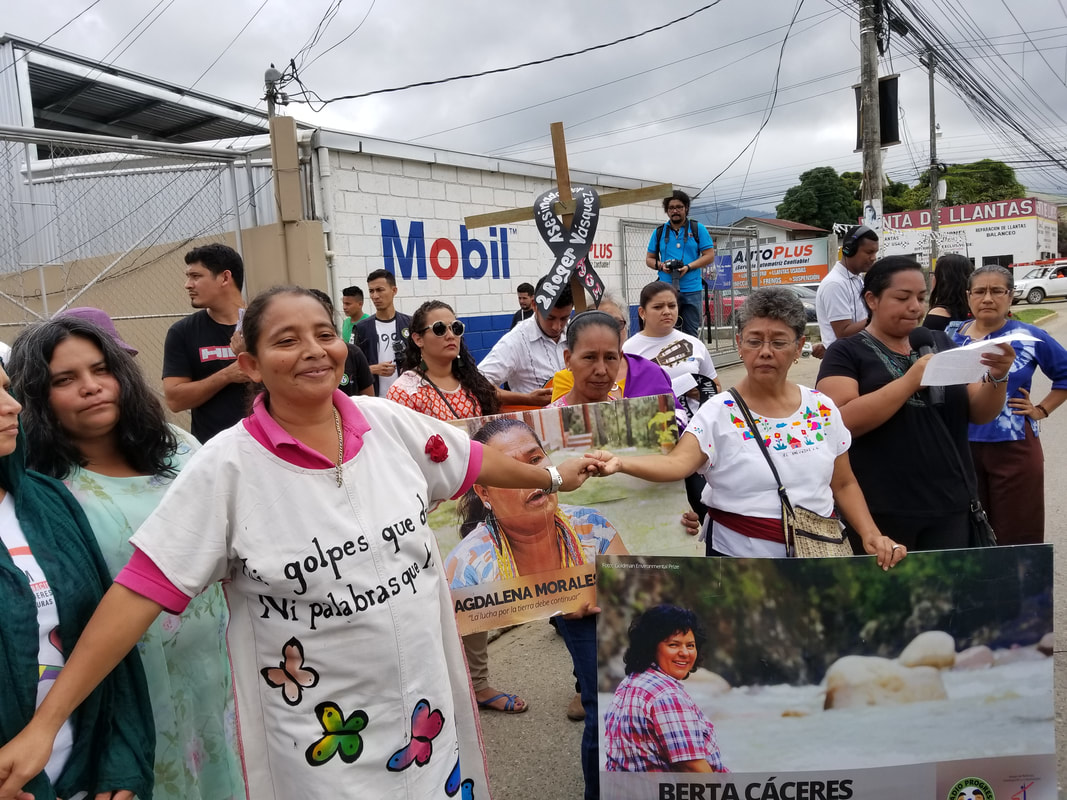
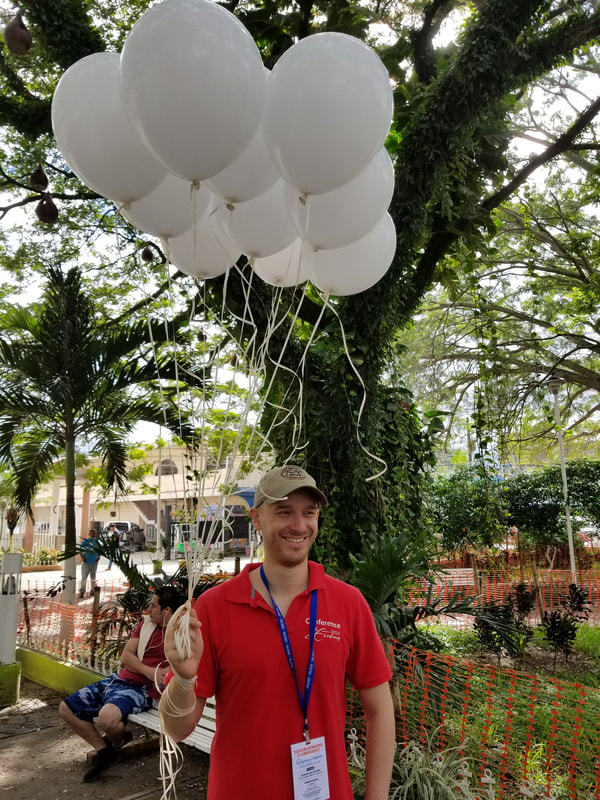
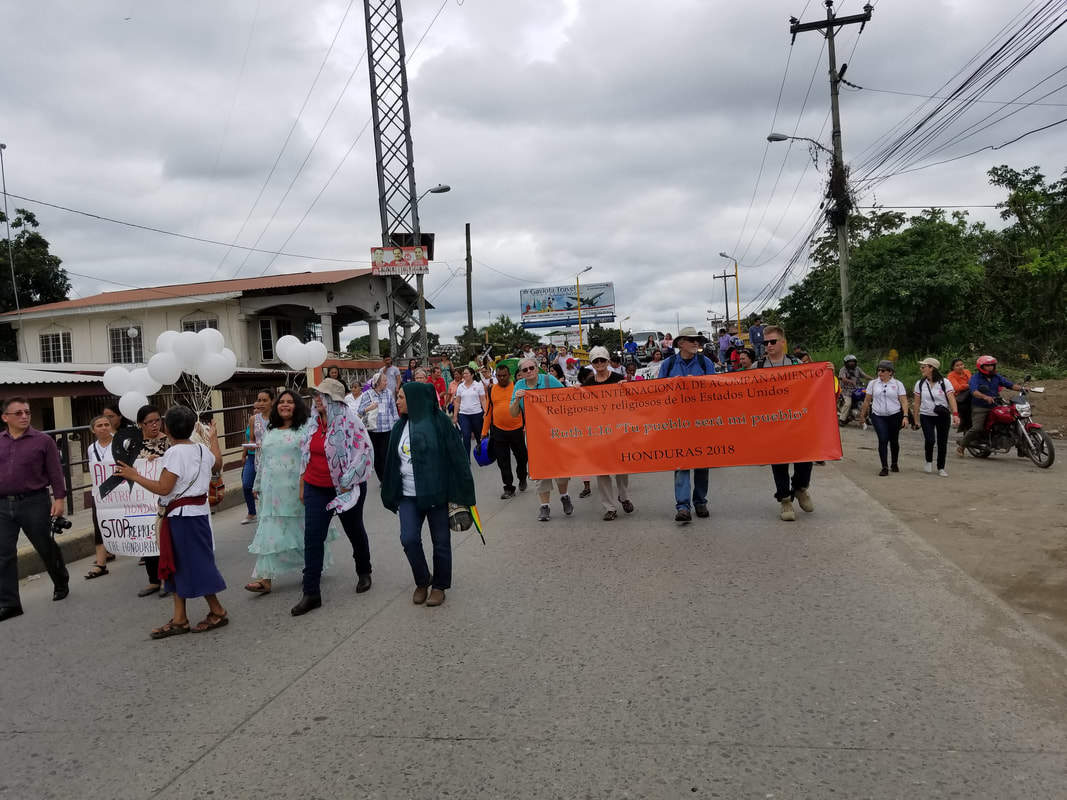
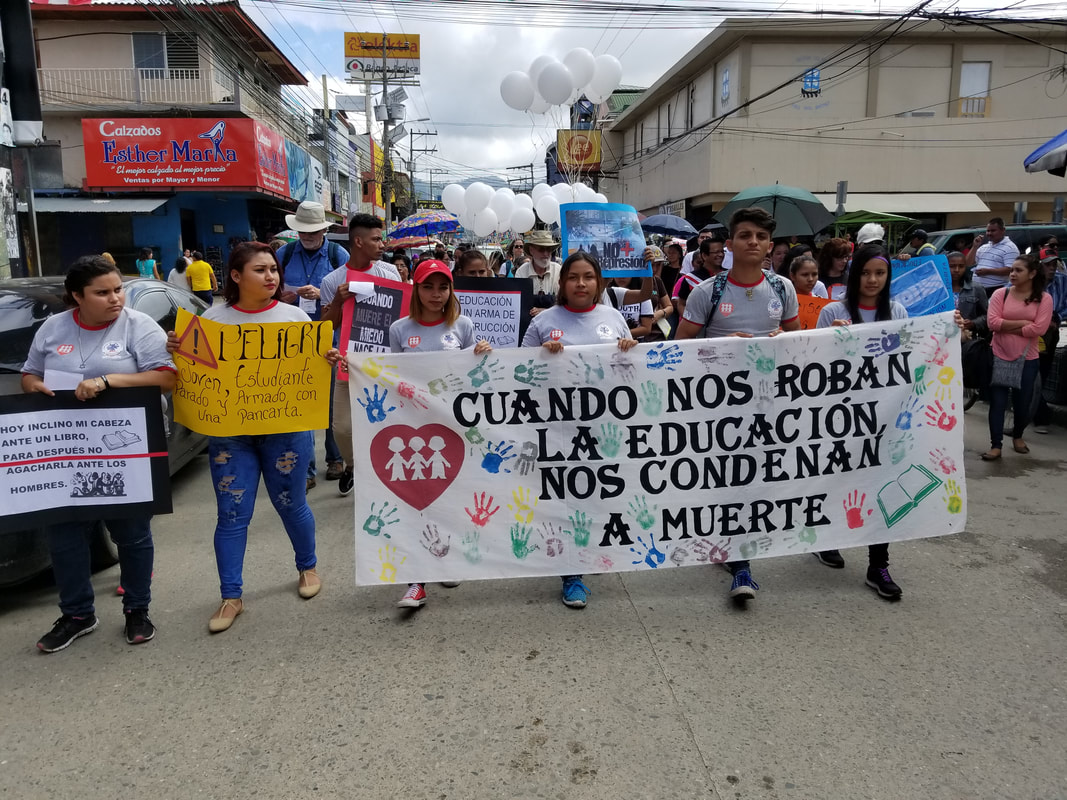
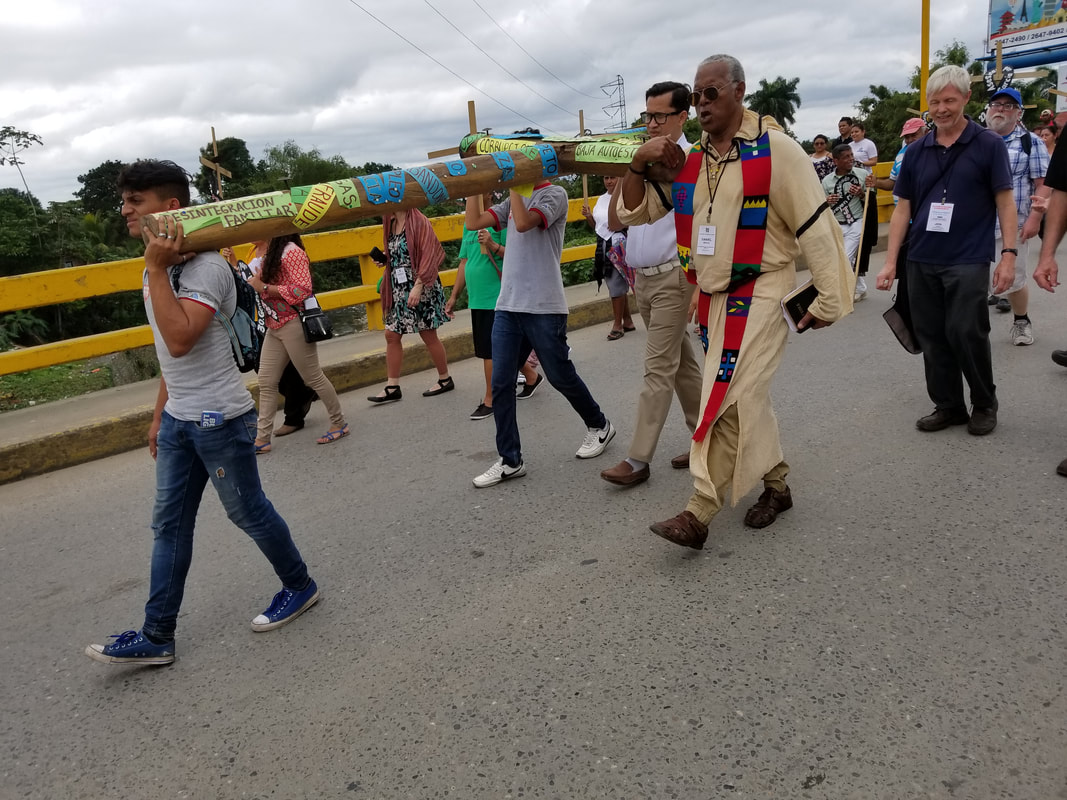
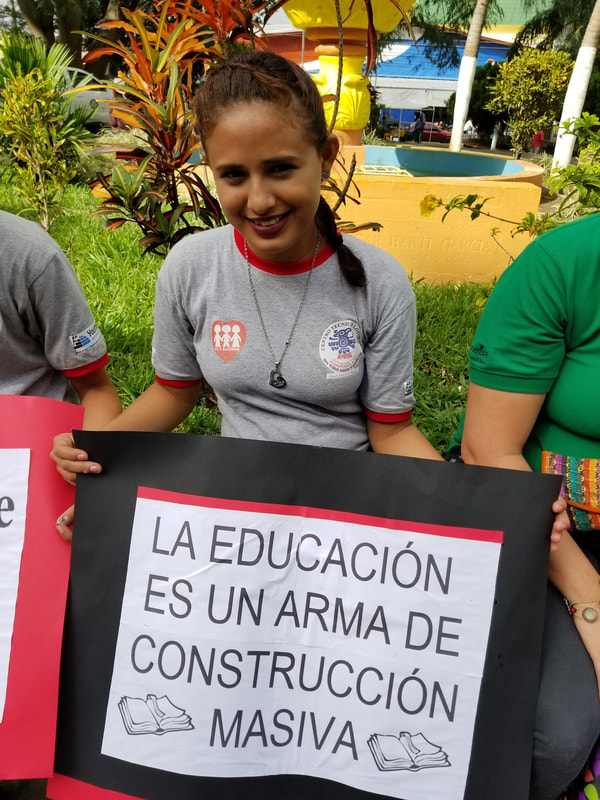
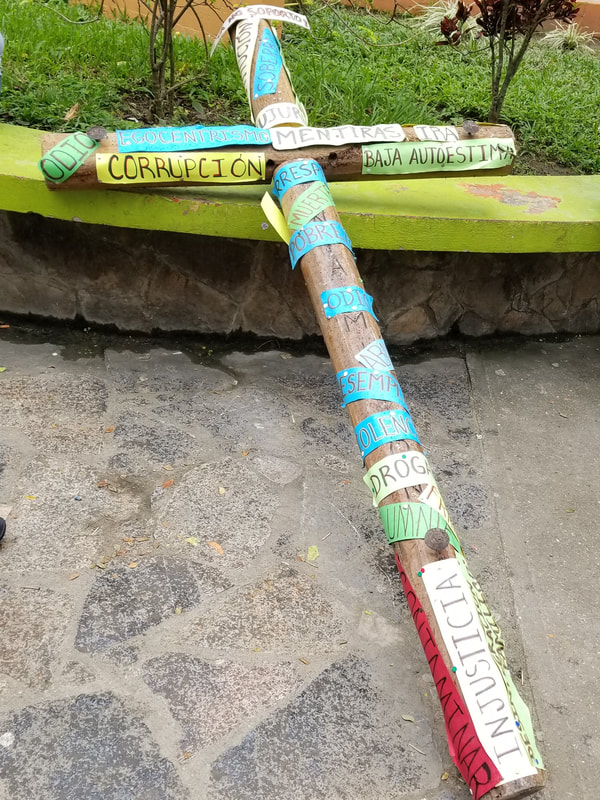
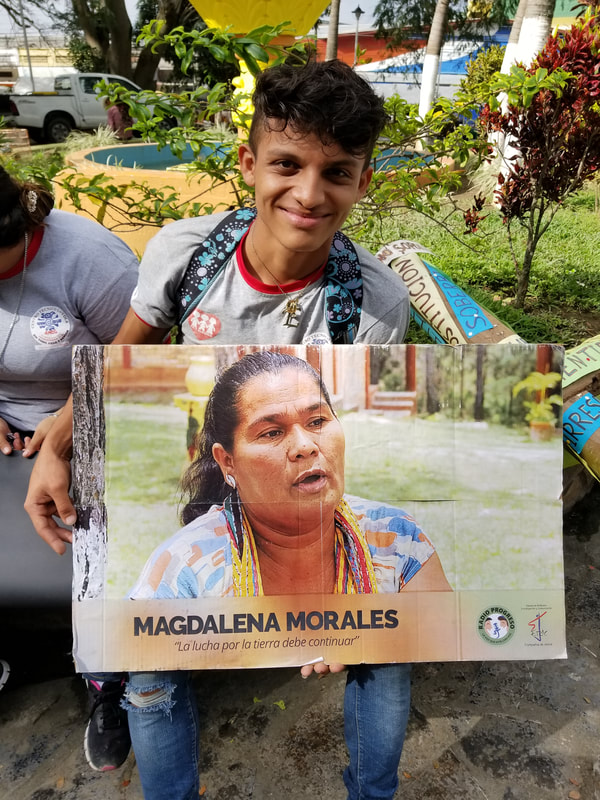
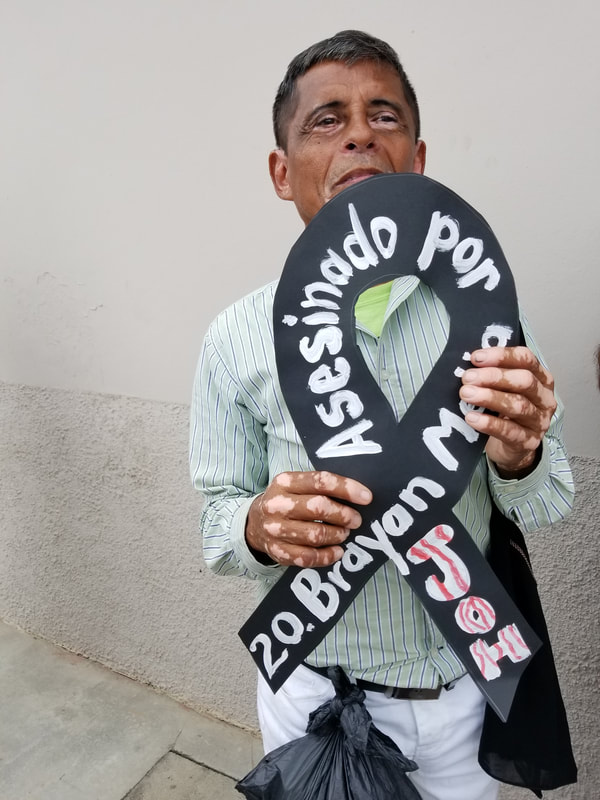
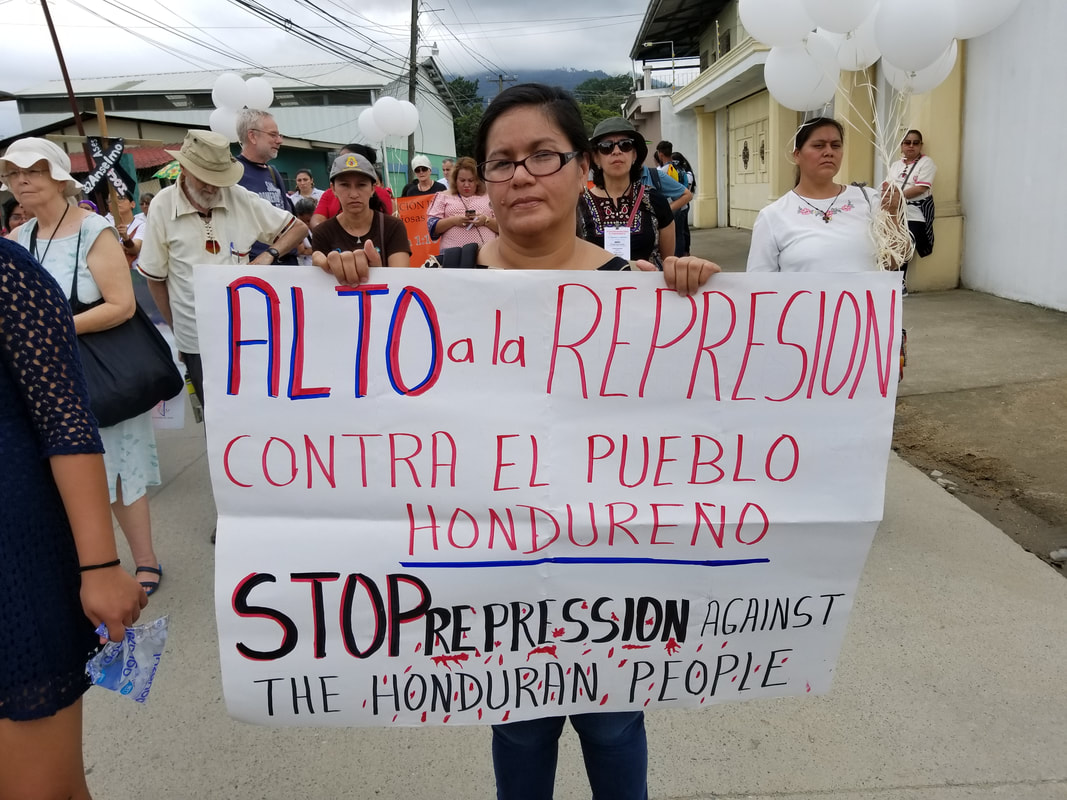
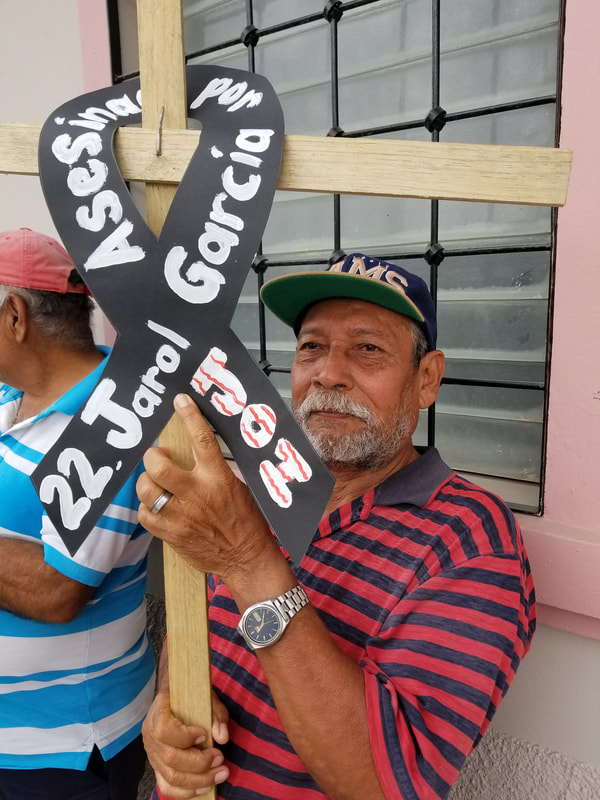
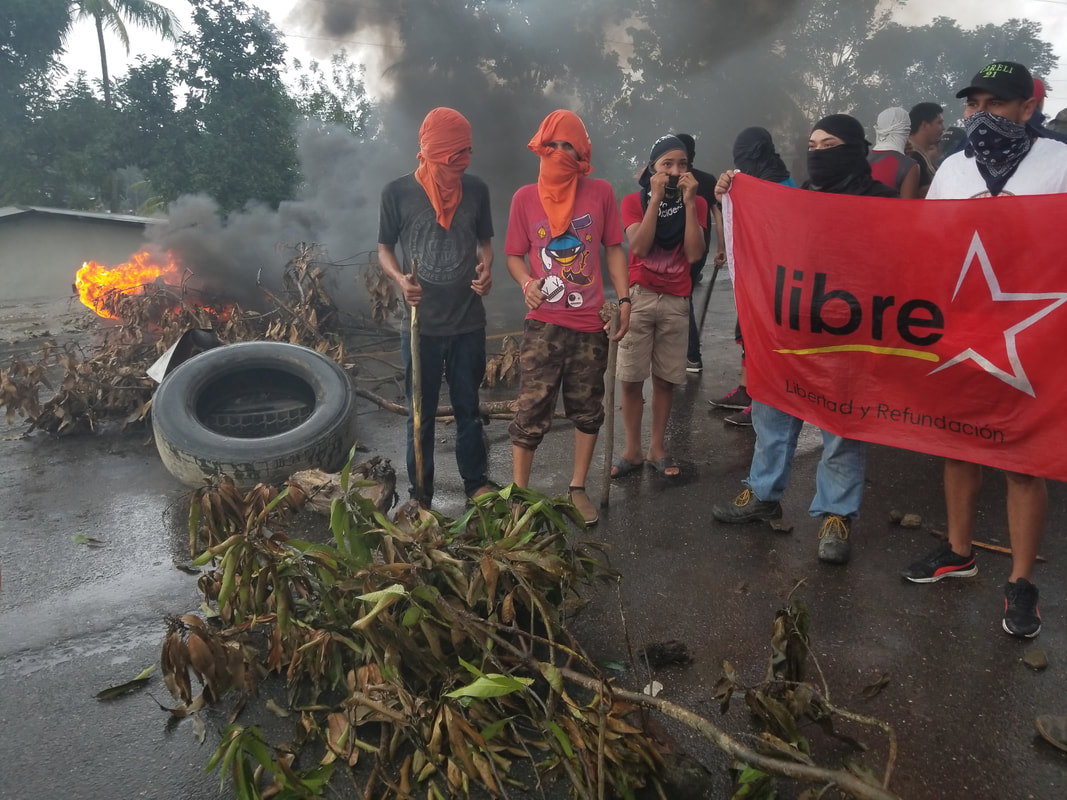
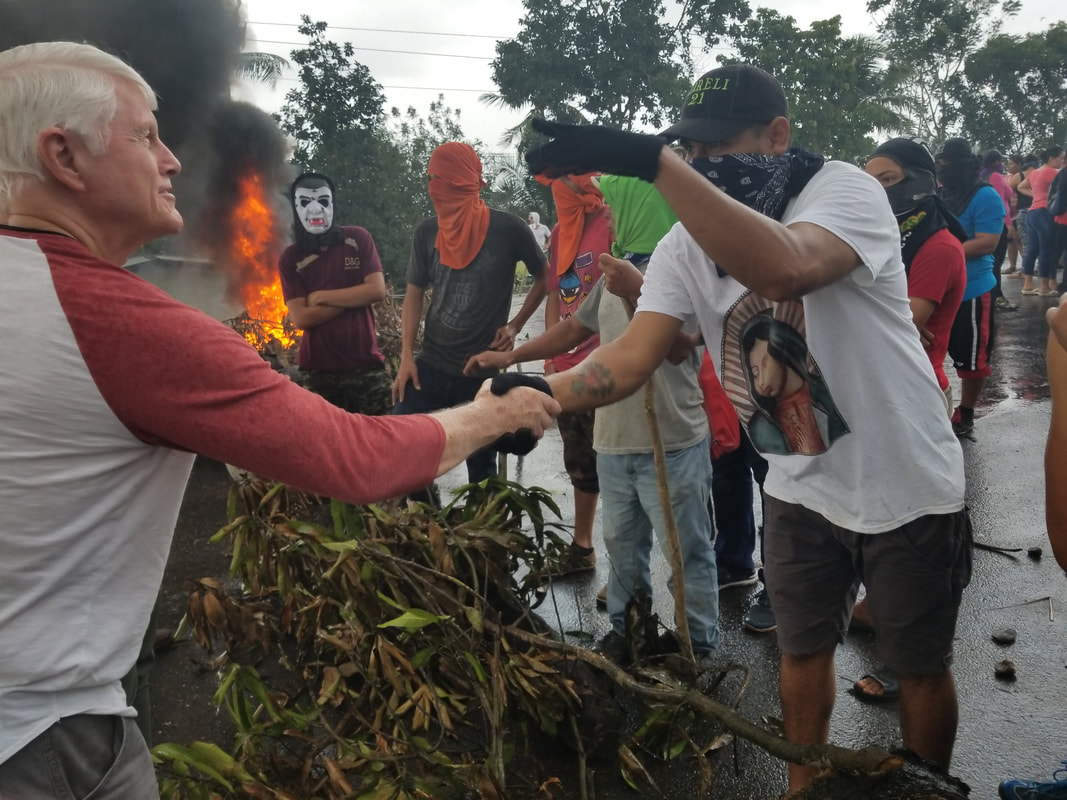
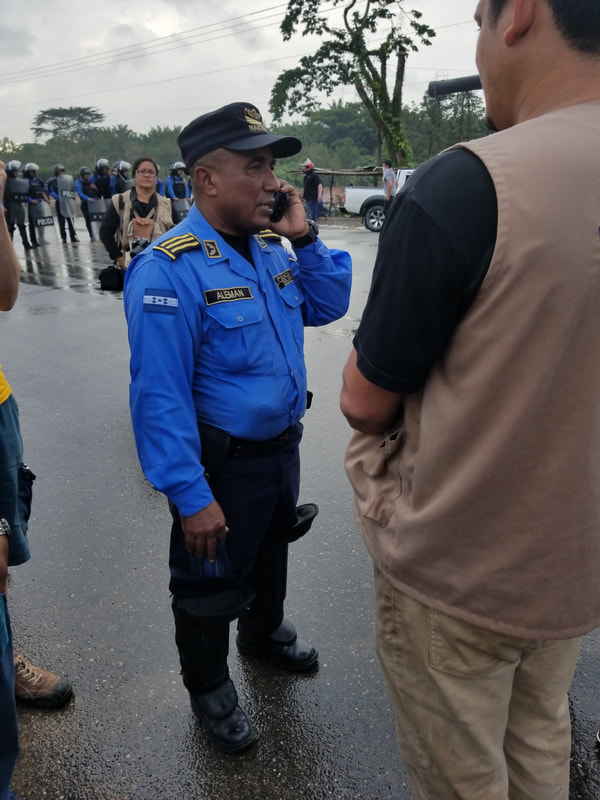
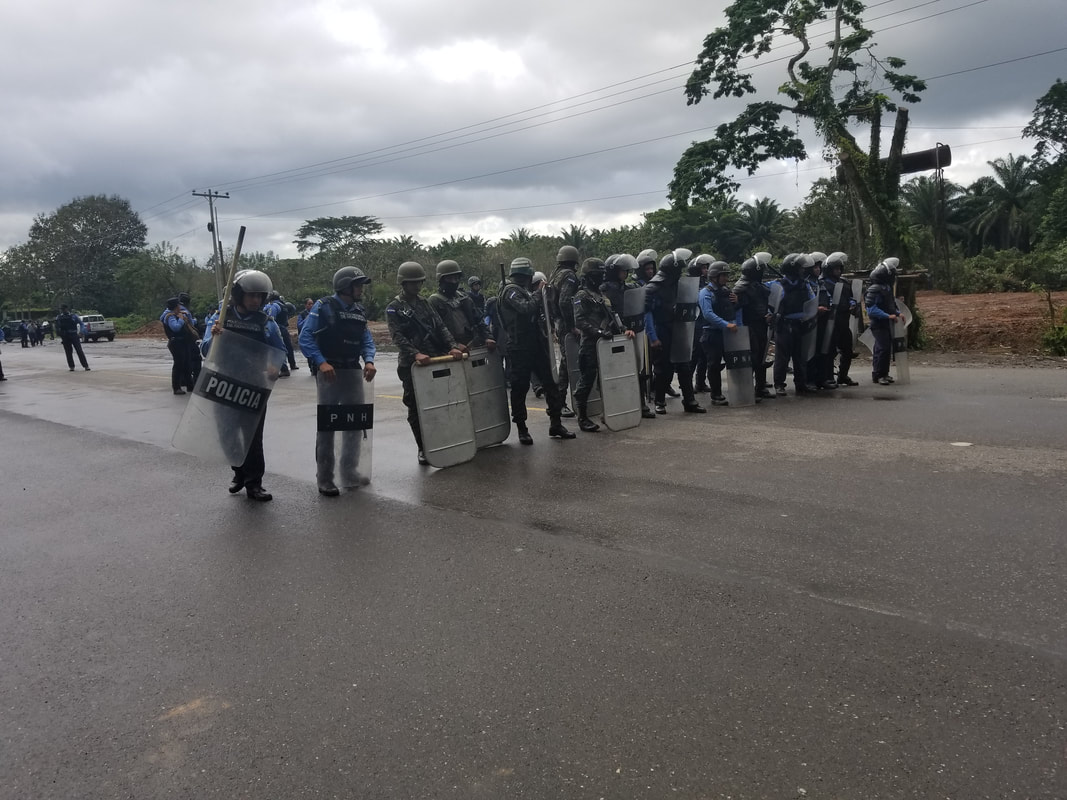
 RSS Feed
RSS Feed